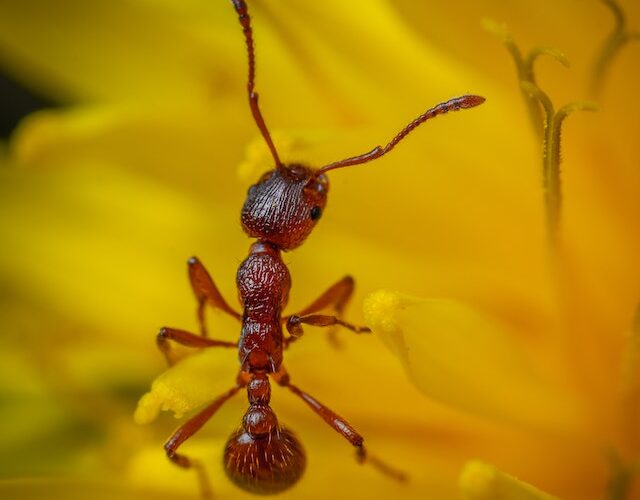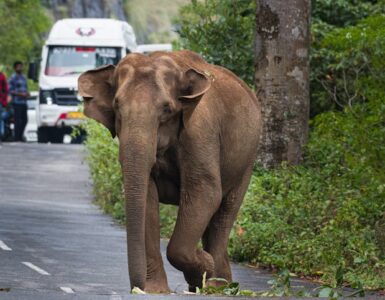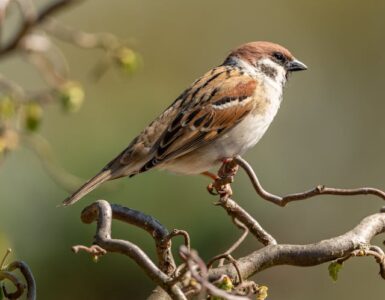All of us would have heard the famous fable about the Ant and the Grasshopper that teaches the importance of hard work and planning for the future and that those who do not prepare will suffer the consequences. If you have not heard the story, it goes like this.
Once upon a time, there was an ant and a grasshopper who lived in a field. The ant spent its days collecting food and storing it away for the winter, while the grasshopper spent its time singing and playing, without a care in the world.
As the summer turned to fall, the grasshopper realized it had not saved any food for the winter. It asked the ant for some food, but the ant refused, saying that it had worked hard all summer to prepare for the winter and that the grasshopper should have done the same.
The grasshopper continued to beg the ant for food, but the ant would not relent. Eventually, the grasshopper realized that it had made a mistake by not planning for the future, and it was forced to go hungry during the winter.
While we know creatures in the biodiversity have a symbiotic relationship with each other, we don’t know if this conversation between the ant and the grasshopper would have occurred.
Having said that we can’t deny the fact these tiny little ants are extremely hard-working, tenacious, and mighty. Let us look at the importance of ants and some interesting facts about them.
Importance of Ants
Ants have been around for more than 100 million years, and they are believed to have evolved from wasp-like ancestors. There are over 12,000 known species of ants, and they can be found on every continent except Antarctica, thus playing an extremely essential role in almost every ecosystem.
Ecosystem Engineering
Many people also call them ecosystem engineers as they can modify their environment by excavating soil, constructing nests, and foraging for food. This activity can have a significant impact on soil structure, nutrient cycling, and plant growth, ultimately affecting the entire ecosystem.
The engineering is not done by a few individual ants, but they do it together because they are social insects. Ants live in large groups called colonies which can contain millions of individual ants. They collectively make comfortable homes called ‘nests’ or ‘anthills’ where each of them can have hundreds of little rooms and passages. These rooms are also used for food storage.
Maintaining Plant Diversity
Some species of ants also collect and transport seeds to their nests, where they can germinate and grow. This process can help maintain plant diversity and ecosystem resilience.
Ants are generally not considered to be significant pollinators like bees or butterflies, but a few species of ants do play a minor role in pollination. Ants like to feed on flowers for their sweet nectar and sometimes as they go about their business, they might cause pollen to be released and transferred to other flowers.
Ant pollination is relatively rare in the plant kingdom and is only found in a few plant families that include orchids. Some species of orchids have evolved specialized relationships with ants and are pollinated by them. These orchids have evolved unique floral structures and scents that attract ants, and they often produce a sugary liquid called nectar that provides food for the ants.
Keeping the Environment Clean
The importance of ants is also visible in keeping our environment and ecosystem clean. This ability is mainly driven by its two unique skills.
Chemical Signals: Ants have a sophisticated communication system based on chemical signals called pheromones. These signals allow ants to communicate with each other about food sources, threats, and other important information.
Whenever one of the ants locates a food source, it signals to the other ants in its colony. And as they are natural predators, they play an important role in the food web by consuming dead organisms. They collectively control pest populations in agricultural and natural ecosystems.
Heavy Lifting: Ants can win Olympic Gold every time if the authorities have a weightlifting category for their weight. Ants can lift and carry objects that are up to 50 times their body weight, which is equivalent to an average person carrying a car. This heavy lifting also helps them carry dead insects and foods which are a hundred times their size.
Ants are among very few animals, that have been observed to use tools. Some species use sticks and other objects to help them gather food or defend their nests.
Ants as a Food Source
Ants are a food source for many other animals, including birds, reptiles, and mammals.
Apart from birds, and lizards, there is a specialized predator that feeds primarily on ants and is therefore called Anteater. Some species of bears, such as black bears, have been known to consume ants from anthills, particularly during the summer months when other food sources are scarce.
The importance of ants is not just in the ecosystem, but also as a food source for humans in some parts of the world. With the growing concern to feed the rapidly rising population, edible insects like ants have emerged as a trend that can provide healthy and sustainable diets. They are high in protein and other nutrients and are considered a delicacy in some cultures.
In Mayurbhanj, a district in the Eastern part of India, a food paste (‘Kai Chutney) is prepared using Red weaver ants which are indigenous to that part. This red ants dish has the potential to cure a variety of illnesses. Other countries that have prepared food dishes from Ants are
- Laos: Weaver ants are used to add acidity to fish soups
- Thailand: Weaver ants are sold in cans/
- Peruvian Amazon: Weaver ants are typically roasted or fried. The larvae are commonly roasted and mixed with cassava flour.
- Colombia: Leaf-cutting ant queens are sold fried at local markets.
- Mexico: Leaf-cutting ants are usually roasted and ground to flavor mayonnaise and prepare sauces
Wrapping Up
The small little ants, which we often see them traversing up and down our walls or floors, have a significant role to play in our environment. The importance of ants is not just restricted to one or two areas but across many ecosystems and their activities can have far-reaching effects on the health and function of those ecosystems.
Here is a video on Ants that will give a visual perspective of their importance in our ecosystem.






Add comment